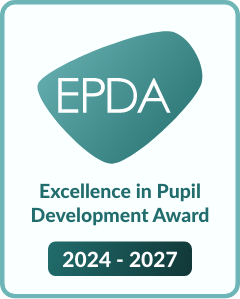Modern Foreign Languages (MFL)
Members of Staff
- Mrs R. Sinnott: Subject Lead MFL/Teacher of Spanish
- Miss P. Aimeur: Teacher of French
- Ms C. Hurst: Teacher of French
MFL at Lancaster
The Modern Foreign Languages (MFL) department is dynamic, forward-looking and successfully combines enthusiasm with experience in teaching our students. We believe in teaching the knowledge of how to learn a language combined with the linguistic and cultural aspects of the language itself.
‘It’s a small world!’ A phrase often used, and at Lancaster, we believe that studying languages is an important part of education as it helps children to aspire to grow in becoming more effective and independent communicators.
In the course of our teaching we enable and encourage students to look beyond the British linguistic and cultural boundaries to experience the wider world.
In using the communicative approach, we:
- differentiate teaching and learning for all students;
- establish a solid foundation on which to build their further learning of the subject;
- contextualise students’ learning by providing access to authentic resources and establishing contacts both nationally and internationally for the purposes of project work;
- create an environment where students are challenged by the learning materials and content, become more independent in their learning, while being stimulated and rewarded.
Supporting your child
As a parent/carer it can be challenging to know how best to support your child in their language studies. The websites below will allow you to guide your child towards positive use of the internet for learning.
KS3
www.linguascope.comwww.linguascope.com (students know the login details.)
- elementary - the basics (non-confident)
- beginner - basic vocabulary
- intermediate
KS4
www.languagesonline.org.ukwww.languagesonline.org.uk - vocabulary and grammar work with instant feedback.
www.bbc.co.uk/GCSEbitesize www.bbc.co.uk/GCSEbitesize
KS3
French and Spanish at KS3
Over the two years, KS3 Students will follow a course of either French or Spanish from Year 7 to Year 8.
Our KS3 curriculum provides the foundation for learning further languages, equipping students to study and work in a broad range of industries and roles as well as other countries.
The curriculum has been mapped out so that students cover all of the essential skills they need in order to succeed at GCSE, including extended writing, spontaneous responses to images, translation and role plays.
Students are formally assessed in accordance with the whole school assessment calendar. Students are given regular feedback on the level of accuracy, complexity and variety to ensure there are incremental improvements in their spelling, punctuation and grammar broadening their range of their ability to become confident communicators.
Students are set a weekly homework in MFL. This could be vocabulary learning, grammar work completion or using online websites for particular practice and consolidation of their learning.
Topics Covered at KS3
Year 7:
- Greetings & Introductions to MFL
- Sports and Hobbies
- School Life
Year 8:
- Healthy Living
- Holiday
- Daily Routine
GCSE
GCSE French/Spanish
As KS4 at Lancaster Academy begins at year 9, we have designed a programme of study for that first GCSE year to serve as a foundation on which to further build students’ skills. This will include exams skills practice, following the themes covered in the 2-year course, but with a focus on getting the grammar right, so our students can become more creative and expressive as their learning continues.
We offer the AQA specification for GCSE French/Spanish.
Through studying a GCSE in a modern foreign language, students develop their ability and ambition to communicate with native speakers in speech and writing. The study of a modern foreign language at GCSE should also broaden students’ horizons and encourage them to step beyond familiar cultural boundaries and develop new ways of seeing the world.
Students study all of the following themes on which the assessments are based:
- identity and culture;
- local, national, international and global areas of interest;
- current and future study and employment.






 ↑
↑





